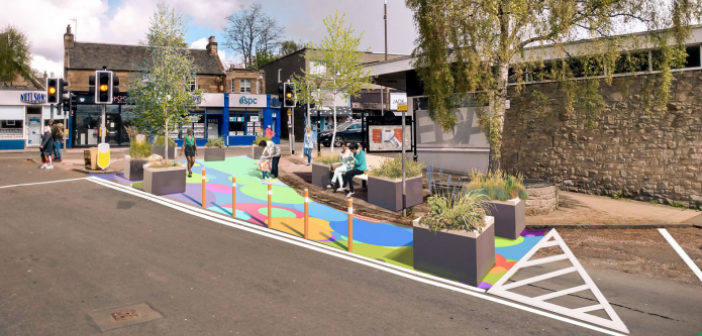The City of Edinburgh Council is looking for resident’s opinions on plans for Low Traffic Neighbourhoods (LTNs) in the Scottish capital.
A second phase of community engagement on plans to introduce LTNs in two areas of Edinburgh will begin on Friday [04 June].
Having already sought the public’s views on travel choices and community spaces in Corstorphine, Leith and East Craigs during February, the council said there was a clear appetite within Leith and Corstorphine to move forward with more detailed dialogue.
The council is now looking for feedback on initial recommendations to create safer, more comfortable environments for walking, cycling and wheeling, as well as for spending time in local streets and outdoor spaces.
These have been informed by the opinions and ideas shared during the first phase of engagement, as well as traffic data which indicates where there are issues around intrusive traffic.
Transport and environment convener Lesley Macinnes, said: “Over the last year we’ve seen the impact that lower traffic volumes and space to walk and cycle can have on our environment.
“As we work to make a sustainable recovery from the pandemic, we’re looking at ways of working together with our communities on designs and proposals that would make neighbourhoods more liveable, easier to move around by active travel and welcoming to spend time in.”
For Corstorphine, two options have been proposed to improve safety on the High Street, as well as various interventions elsewhere in the area to restrict through traffic, particularly around schools.
The Leith connections project designs consist of two elements. Firstly, a segregated cycle route between the Foot of the Walk and Ocean Terminal, which will be introduced on a permanent basis. And an experimental LTN in the area between Salamander Street, Commercial Street, North and Great Junction Street, Duke Street and the roads around Leith Links is proposed
Each of the schemes will be refined following the current period of engagement and brought back to Transport and Environment Committee. If approved, they could be introduced towards the end of 2021.





